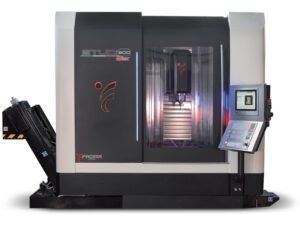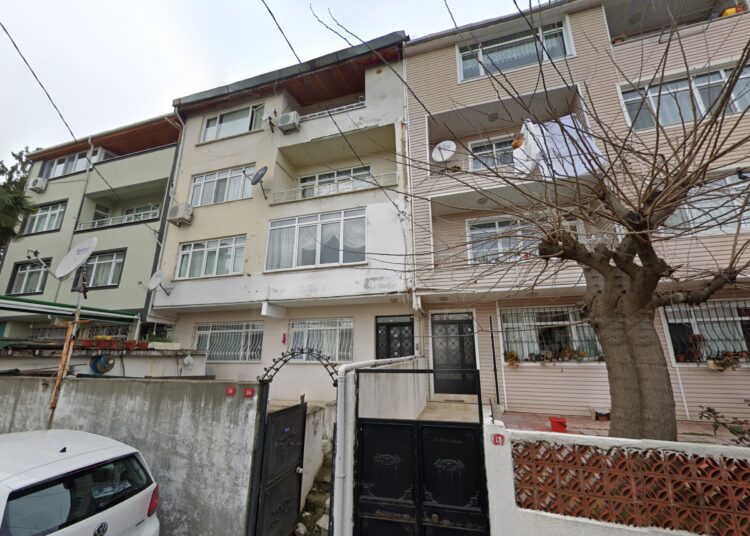Abdullah Bozkurt/Stockholm
The Spanish National Court has confirmed the pretrial detention of a Georgian national at the center of an international smuggling network that used Turkey as a key logistical hub to disguise the re-export of sensitive industrial equipment to Russia.
The July 14, 2025 ruling sheds light on how Turkish companies and infrastructure were systematically exploited to bypass European Union sanctions.
Court documents reveal that a Georgian citizen identified only by the first name of Alexander orchestrated the export of a FAGIMA Studio 800 machine tool, classified as dual-use equipment, from Spain through a chain of shell companies. The equipment was officially consigned to Turkey, but investigators found its real destination was the Russian company Newton-ITM, a firm with ties to Moscow’s defense-related sectors.
To mask the transfer, Alexander relied on GERIMEKS ST Global Ithalat Ihracat Ltd. Sti, a Turkish trading company registered as an importer. Turkish trade registry data show that the company is owned by Ali Rıza Gülkanat, who appears to be a politician involved with both the ruling Justice and Development Party (AKP) and the main opposition Republican People’s Party (CHP).
The Spanish court’s ruling reveals how Russia used Turkey as a conduit to circumvent Western sanctions:
Evidence seized by Spanish police included company seals for GERIMEKS in Turkey, GERIMEX in Russia and International Engineering & Machine SL (INTEM) in Spain. The possession of these stamps allowed Alexander to fabricate commercial documents, making it appear as though shipments were legitimate Turkish imports rather than diversions to Russia.
Messages recovered from Alexander’s phone provided investigators with a clear picture of the Turkish connection. In April and May 2024 Alexander exchanged messages with Russian contacts at Newton-ITM, sending invoices and transport documents. One invoice from a logistics company showed a 12,000 euro transport contract for moving the machine tool from Istanbul to the Russian port of Tuapse and from there to Moscow.
These conversations demonstrated that Turkey was not the final destination but rather a transit location. Goods were brought into Turkey, repackaged as Turkish exports, and then shipped onwards to Russia, allowing the network to sidestep EU trade restrictions.

The court ruling shows how Turkish-registered companies provided crucial cover for the network. GERIMEKS in Turkey and GERIMEX in Russia appeared to be mirror companies controlled by associates of the accused. By maintaining entities in both countries, the group created a false commercial trail, making it difficult for customs and regulators to detect the illicit transfers.
Investigators concluded that Alexander was the “true leader of the triangulation scheme,” using Turkey as the middle node between Spain, the originator of the export, and Russia, the final recipient.
The case adds to mounting European concerns that Turkey is serving as a conduit for sanction-busting schemes benefiting Moscow. EU and US officials have repeatedly warned that Turkish companies are re-exporting dual-use goods such as industrial machinery, electronics and chemical precursors that can be repurposed for Russia’s military industry.
This trade registry document shows that Gerimex in Turkey is owned by Ali Rıza Gülkanat:
In this case, the Spanish court pointed to Turkey’s role not as a passive transit country but as an active link in the supply chain, where companies were registered, documents forged and shipments staged. The use of corporate seals tied to Turkish firms underscored the depth of the involvement.
Alexander’s defense team insisted that all exports complied with EU trade rules, that Turkish companies were legitimate commercial partners and that the accused had no control over the goods once they left Spain. The defense also emphasized Alexander’s poor health as grounds for release.
However, the judges found that the document trail, the possession of Turkish corporate seals and cross-border coordination pointed to deliberate deception. The court concluded that Turkey was instrumental in disguising the real destination of the prohibited exports and that Alexander personally orchestrated the scheme from behind the scenes.
The ruling illustrates how easily Turkish trading companies can be drawn into sanctions-busting networks. It raises questions about Ankara’s enforcement of export controls and whether some Turkish firms are willingly providing cover for Russian procurement efforts with the full knowledge and approval of Turkish President Recep Tayyip Erdogan.
With Spain now confirming Alexander’s detention, prosecutors are expected to expand their investigation into the network’s Turkish ties, which could lead to greater scrutiny of Ankara’s role as a sanctions loophole within NATO and the EU’s broader security landscape.












